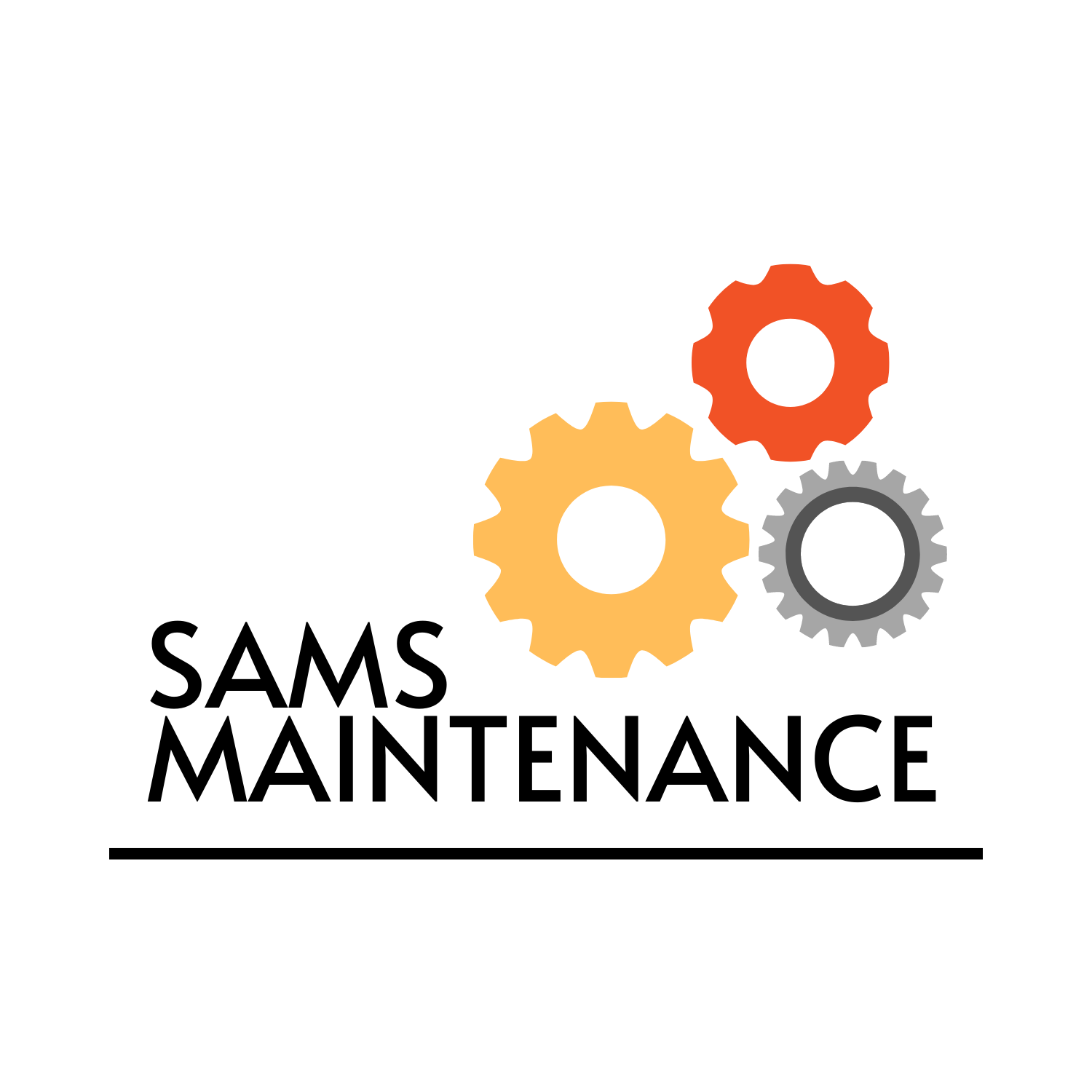As a homeowner, maintaining your property can seem like a daunting task, especially when faced with the prospect of costly repairs and unexpected expenses. However, with the right approach and mindset, you can master the art of home repair and maintenance, ensuring your home remains safe, efficient, and beautiful for years to come. By understanding the importance of regular maintenance, identifying high-risk areas, and prioritizing tasks based on risk and frequency, you can create a comprehensive plan to keep your home in top condition.

The 1 Rule for Home Maintenance
As a homeowner, it’s essential to set aside funds for home maintenance repairs to prevent costly surprises down the road.
- The 1 Rule: Allocate 1% of your home’s total purchase price annually for home maintenance expenses.
- For instance, if you purchased a $250,000 home, you’d need to save approximately $2,500 annually, which translates to around $208 per month.
- This rough estimate doesn’t account for labor costs or materials, and other factors may influence the actual cost.
- However, having a dedicated fund for home maintenance can help you stay on top of necessary repairs and replacements, reducing the likelihood of unexpected expenses.
- By prioritizing home maintenance, you’ll be better equipped to handle issues before they become major problems, saving you time, money, and stress in the long run.
- Remember, regular maintenance is key to extending the lifespan of your home’s systems and components, ultimately protecting your investment.
- Consider consulting with a professional contractor or handyman to get a more accurate assessment of your home’s maintenance needs and develop a personalized plan.
- Additionally, keep track of your expenses and receipts to ensure you’re staying within your allocated budget and making the most of your home maintenance fund.
- By following the 1% rule and staying proactive with home maintenance, you’ll be well on your way to enjoying a safe, comfortable, and well-maintained living space.
At Sams Maintenance, we understand the importance of home maintenance and offer a wealth of resources and expertise to help you navigate the process.
From DIY tutorials to professional advice, our goal is to empower you with the knowledge and confidence to take control of your home’s maintenance needs.
Visit our website for more information on home maintenance tips, tricks, and best practices, and don’t hesitate to reach out if you have any questions or concerns.
5 Critical Items That Require Maintenance in a Residential Estate
To ensure the longevity and safety of your residential estate, regular maintenance is crucial. Here are five essential items that need attention:
-
1. Plumbing System
The plumbing system is a vital component of your estate, supplying water and removing waste. Regular checks can prevent leaks, burst pipes, and other issues.
We recommend inspecting your pipes every six months, checking for signs of wear and tear, and addressing any problems promptly.
For more information on how to maintain your plumbing system, visit our plumbing maintenance guide.
-
2. Electrical System
Your electrical system powers everything from lights to appliances. To avoid electrical shocks, fires, or other hazards, ensure your system is well-maintained.
We suggest having your electrical system inspected annually by a licensed electrician and replacing worn-out components as needed.
Learn more about electrical safety and maintenance on our electrical safety tips page.
-
3. HVAC System
Your heating, ventilation, and air conditioning (HVAC) system keeps your estate comfortable year-round. Neglecting its maintenance can lead to reduced efficiency, increased energy bills, and premature replacement.
We advise scheduling annual tune-ups with a certified HVAC technician and changing filters regularly to ensure optimal performance.
Discover how to extend the life of your HVAC system on our HVAC maintenance guide.
-
4. Roofing System
Your roofing system protects your estate from the elements. Cracked, damaged, or missing shingles can compromise its integrity and lead to costly repairs.
We recommend inspecting your roof twice a year, repairing or replacing damaged shingles promptly, and considering professional cleaning services to remove debris and moss.
Learn more about roofing maintenance and repair on our roofing repair guidelines page.
-
5. Fire Safety Equipment
Fire safety equipment, such as smoke detectors and fire extinguishers, is crucial for preventing and responding to emergencies. Regular inspections and maintenance ensure these devices function correctly.
We suggest testing smoke detectors monthly and fire extinguishers quarterly, and replacing batteries or recharging cylinders as recommended by the manufacturer.
Find out how to maintain your fire safety equipment on our fire safety equipment maintenance page.

Can You Do Home Repairs Yourself?
As a homeowner, taking charge of home repairs can save you money, increase your sense of accomplishment, and give you peace of mind.
-
Start by assessing the task at hand and determining whether it requires professional expertise or can be handled by a DIY enthusiast like yourself.
-
For simple tasks like painting, minor plumbing fixes, or replacing light fixtures, you can find plenty of resources online, including YouTube tutorials and DIY blogs.
-
However, for more complex tasks like electrical work, HVAC repairs, or structural damage, it’s often best to hire a licensed professional to ensure safety and quality.
Benefits of DIY Home Repairs
-
Saves Money: By doing home repairs yourself, you can avoid hiring contractors and save on labor costs.
-
Increases Sense of Accomplishment: Completing a DIY project can give you a sense of pride and satisfaction.
-
Gives Peace of Mind: Knowing that you’ve taken care of home repairs can reduce stress and anxiety.
When to Hire a Professional
-
Electrical Work: Electrical systems can be hazardous, and it’s best to leave electrical repairs to licensed professionals.
-
HVAC Repairs: Heating, ventilation, and air conditioning systems require specialized knowledge and equipment.
-
Structural Damage: If you notice signs of structural damage, such as cracks in walls or ceilings, it’s essential to consult a professional contractor.
Resources for DIY Home Repairs
-
YouTube Tutorials: Find step-by-step instructions and video guides on YouTube for various DIY projects.
-
Diy Blogs: Websites like The Family Handyman and This Old House offer valuable tips and advice on home repairs and DIY projects.
-
Home Improvement Stores: Visit local home improvement stores like Home Depot or Lowe’s for advice and resources on DIY projects.

Maintenance Needed for a House
The most crucial aspect of owning a house is regular maintenance to ensure its safety and longevity.
-
Cleaning Gutters
Cleaning gutters is essential to prevent water damage and foundation issues. It should be done at least twice a year, once in the spring and once in the fall.
-
HVAC Maintenance
Regular HVAC maintenance is vital to ensure efficient heating and cooling. Cleaning and inspecting the unit twice a year and replacing filters monthly can significantly extend its lifespan.
-
Plumbing Maintenance
Checking for leaks and damaged pipes is crucial to prevent costly repairs. Regular inspections and prompt repairs can save homeowners money and stress.
-
Seasonal Upkeep
Seasonal upkeep involves tasks such as:
- Inspecting roof shingles and repairing or replacing them as needed
- Cleaning windows and window sills
- Trimming trees and shrubs to maintain clearance around the house
- Sealing gaps and cracks in walls and floors
-
Daily Tasks
Daily tasks include:
- Monitoring and adjusting thermostat settings
- Checking and replacing air filters
- Inspecting and cleaning appliances
- Reporting any issues or concerns to a professional
By prioritizing these tasks, homeowners can ensure their house remains safe, efficient, and well-maintained.
Additional Tips
Consider hiring professionals for complex tasks, such as electrical work or roofing repairs.
Keep a record of maintenance tasks and schedules to stay organized and on track.
Stay informed about local building codes and regulations to ensure compliance.
Recommended Resources
For more information on home maintenance, visit our website at https://samsmaintenance.com/.
Additionally, consider consulting reputable sources, such as the National Association of Home Builders (NAHB) or the International Association of Certified Home Inspectors (NACHI).
Creating a Home Maintenance Checklist
As a homeowner, staying on top of regular home maintenance tasks can seem daunting, but having a comprehensive checklist can make it easier to keep your home in great shape.
-
Monthly Tasks:
- Check and replace air filters in your HVAC system
- Clean out gutters and downspouts
- Inspect roof for damaged, missing, or loose shingles
- Test smoke and carbon monoxide detectors
- Check and replace water filter
-
Quarterly Tasks:
- Deep clean refrigerator coils
- Check and replace furnace filter
- Inspect and clean dryer vent
- Check for signs of pest infestation
- Inspect and test GFCI outlets
-
Semiannual Tasks:
- Power wash deck or patio
- Inspect and repair caulk around windows and doors
- Check and replace humidifier filter
- Inspect and clean range hood
- Check for signs of mold or mildew
-
Annual Tasks:
- Inspect and clean chimney
- Check and replace thermostat battery
- Inspect and repair roof leaks
- Check and replace smoke detector batteries
- Inspect and clean oven
By breaking down these tasks into manageable chunks and scheduling them regularly, you’ll be able to stay on top of your home maintenance and prevent costly repairs down the road.
Remember to always refer to your manufacturer’s instructions for specific maintenance recommendations for your appliances and systems.
For more information on home maintenance and repair, check out our home maintenance tips page.
We also recommend checking out the National Fire Protection Association for more information on fire safety and prevention.
Additionally, consider investing in a smart home device that can alert you to potential issues before they become major problems.
At Sam’s Maintenance, we’re committed to helping you keep your home safe and secure through education and expertise.

Budgeting for Home Maintenance
As a homeowner, it’s essential to allocate funds for regular home maintenance to prevent costly repairs and ensure your property remains safe and secure.
- Rule of Thumb: Set aside 1-4% of your home’s value annually for a home maintenance fund.
- Example: For a $200,000 home, budget $2,000 to $8,000 per year for annual upkeep.
Consider the following factors when determining your home maintenance budget:
- Age and Condition: Older homes may require more frequent repairs and replacements.
- Location: Homes in areas prone to natural disasters or extreme weather conditions may need additional maintenance.
- Size and Complexity: Larger homes with complex systems may require more extensive maintenance.
- Personal Preferences: Consider your personal preferences for home upgrades and renovations.
Some recommended expenses to include in your home maintenance budget:
- Regular Inspections: Hire professionals to inspect your home’s systems and identify potential issues.
- Repairs and Replacements: Allocate funds for necessary repairs and replacements, such as roof replacements or HVAC system upgrades.
- Seasonal Upkeep: Budget for seasonal tasks like gutter cleaning, window washing, and lawn care.
- Preventative Maintenance: Schedule regular maintenance for your home’s systems, including plumbing, electrical, and HVAC.
Remember to review and adjust your home maintenance budget regularly to ensure you’re prepared for unexpected expenses and ongoing costs.
For more information on home maintenance and repair, visit our Home Maintenance Tips page or check out our DIY Repair Guides.
Additionally, consider consulting with a professional contractor or home inspector to get a better understanding of your home’s specific needs and costs.
By prioritizing home maintenance and budgeting accordingly, you can protect your investment, ensure your safety, and enjoy a comfortable living space.

0 Comments